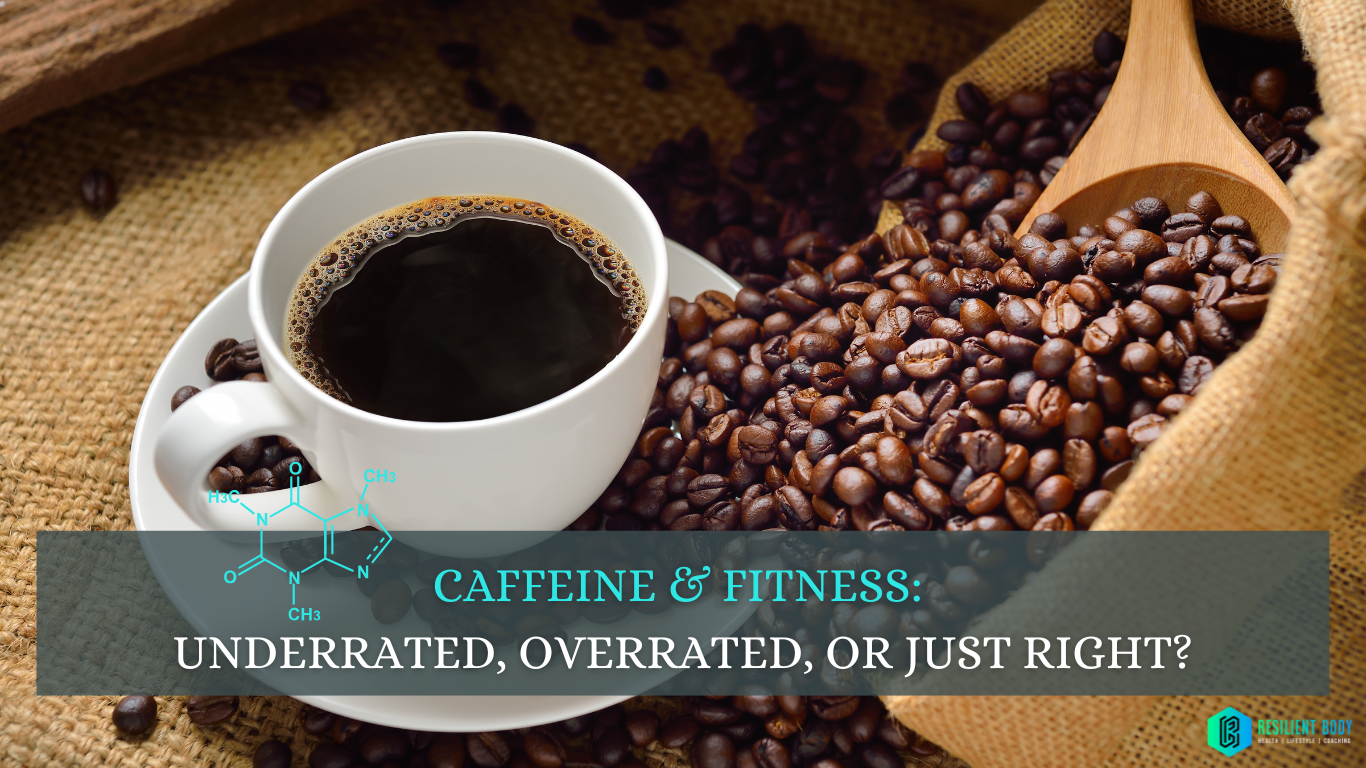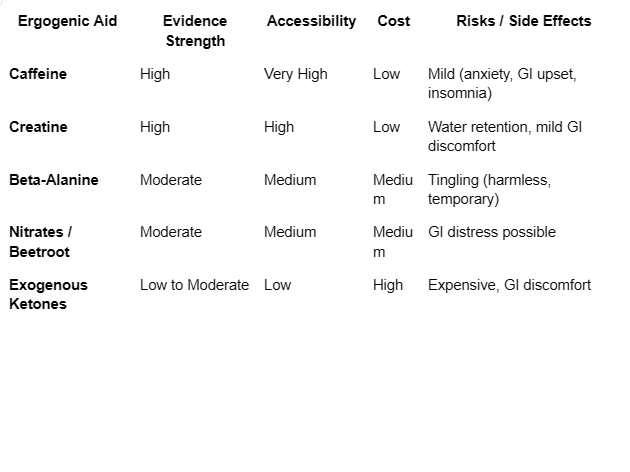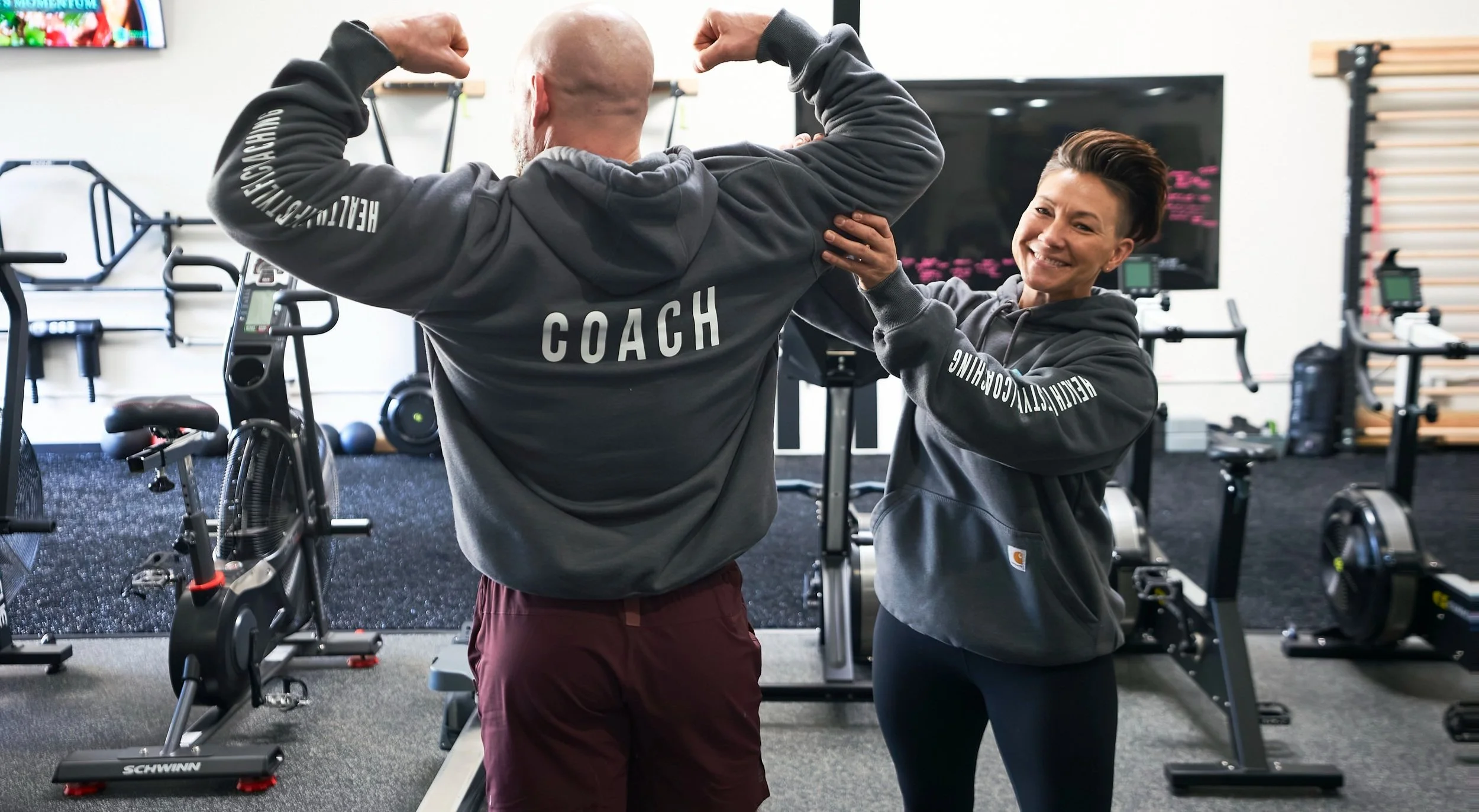CAFFEINE & FITNESS: UNDERRATED, OVERRATED, OR JUST RIGHT?
Let’s talk caffeine—the most widely consumed psychoactive substance in the world, and possibly the most underappreciated tool in your fitness and wellness toolkit.
We all know caffeine as the key ingredient in our morning coffee ritual (or afternoon… ), but when it comes to performance and health benefits, this humble stimulant deserves a closer look.
⚡ CAFFEINE AS AN ERGOGENIC AID
Ergogenics are substances that enhance physical performance, and caffeine has been one of the most consistently researched in this space. It’s been shown to:
Improve endurance and time-to-exhaustion
Enhance muscular strength and power output
Increase alertness and reaction time
Reduce perceived exertion (aka make that workout feel a bit less brutal)
In simpler terms? Caffeine helps you go harder, longer, and feel better doing it.
Is it underrated or overrated?
That depends who you ask. In the clinical and athletic worlds, caffeine is actually one of the few ergogenics with a mountain of consistent, high-quality evidence behind it. So, in terms of effectiveness—it’s appropriately rated, if not slightly underrated when compared to trendier supplements. (Looking at you, beetroot; but we love you too)
🧠 HEALTH BENEFITS BEYOND PERFORMANCE
This is where things get even more interesting. Recent peer-reviewed research, including large-scale meta-analyses published in journals like The New England Journal of Medicine and JAMA, suggests moderate caffeine intake is associated with:
Lower all-cause mortality
Reduced risk of cardiovascular disease
Improved cognitive function and reduced risk of neurodegenerative diseases
Potentially lower risk of type 2 diabetes and some cancers
We’re talking about 2–4 cups of coffee daily, ideally without dumping in sugar and artificial creamers. And no, you don’t need to drink coffee to reap the benefits—tea, yerba maté, and caffeine supplements can offer similar effects.
🔍 A Quick Note on Coffee vs. Caffeine
While we often talk about “caffeine” as the active ingredient, it’s important to distinguish between pure caffeine (as found in supplements or pre-workouts) and coffee, which contains caffeine plus hundreds of bioactive compounds. Most of the long-term health benefits—like reduced all-cause mortality and lower risk of neurological disease—come from studies on coffee consumption, not isolated caffeine. So if you're reaching for performance, pure caffeine is effective. But for broader health impact? Coffee has the edge.
🏛 A BRIEF HISTORY OF CAFFEINE IN SPORT
Caffeine’s performance-enhancing reputation goes way back—like, 9th-century Ethiopia back. According to legend, a goat herder named Kaldi noticed his goats got unusually energetic after eating berries from a certain plant. Those berries turned out to be coffee beans, and word quickly spread. Not long after, people began using coffee to stay alert during long nights—and in parts of Africa, crushed coffee berries were even mixed with fat and used by warriors for stimulation before battle. So yes, your morning Americano has ancient warrior roots.
Fast forward to the 20th century, and caffeine’s connection to sport became more formally documented. In 1907, psychologists William Rivers and Harald Webber published the first scientific study on caffeine’s effect on muscle fatigue—marking the beginning of its modern journey as an ergogenic aid.
In terms of regulation, caffeine has had a bit of a rollercoaster history:
Banned substance (1984–2004): The International Olympic Committee (IOC) added caffeine to its list of prohibited substances in 1984, targeting high urinary concentrations (i.e., mega-dosing).
Removed from the list (2004): The World Anti-Doping Agency (WADA) eventually removed caffeine from the banned list in 2004, though it still monitors its use among athletes.
Today, caffeine is widely accepted in sports, showing up in everything from pre-workouts to endurance gels, and even in strategic dosing protocols used by elite athletes.
⚖️ HOW DOES IT STACK UP?
Compared to other ergogenics, caffeine has a few key advantages:
ERGOGENIC VS ERGOGENIC
So while creatine still holds the crown for muscle growth and recovery, caffeine might be your best bang-for-buck for immediate energy and endurance benefits—with bonus points for long-term health perks.
🏋️ WHY THIS MATTERS FOR YOU
If your goals are rooted in performance, longevity, or simply getting more out of your workouts without adding complexity—caffeine is worth considering. It’s low-cost, easy to implement, and supported by a strong body of evidence. Of course, not everyone tolerates it well (shoutout to our slow metabolizers), so personalization is key. Remember, we are mostly talking about coffee here even though the caffeine therein and in isolation can have some overlapping benefit.
Whether it’s a well-timed cup of coffee 30 minutes before your session, or a dialed-in supplement protocol—we encourage our clients to experiment mindfully and observe how they respond.
📣 ANNOUNCEMENTS
Congratulations to everyone who ran Santa Rosa Half Marathon on August 25, 2025. You rocked it and we are so proud of you! More races to come in the future…
Curious how caffeine fits into your training and health goals? Reach out and let’s build a strategy that works for your body, your schedule, and your lifestyle. We have some wellness coaching spots open. Health Coaching Spots NOW OPEN- We are here to help if you’ve been thinking about making some changes to your overall health and fitness patterns in a way that feels balanced, not restrictive, and sustainable. All this while being in the best shape of your life! Reach out directly to secure your spot!
Look for some exciting new coaching announcements coming with next weeks movement video..






